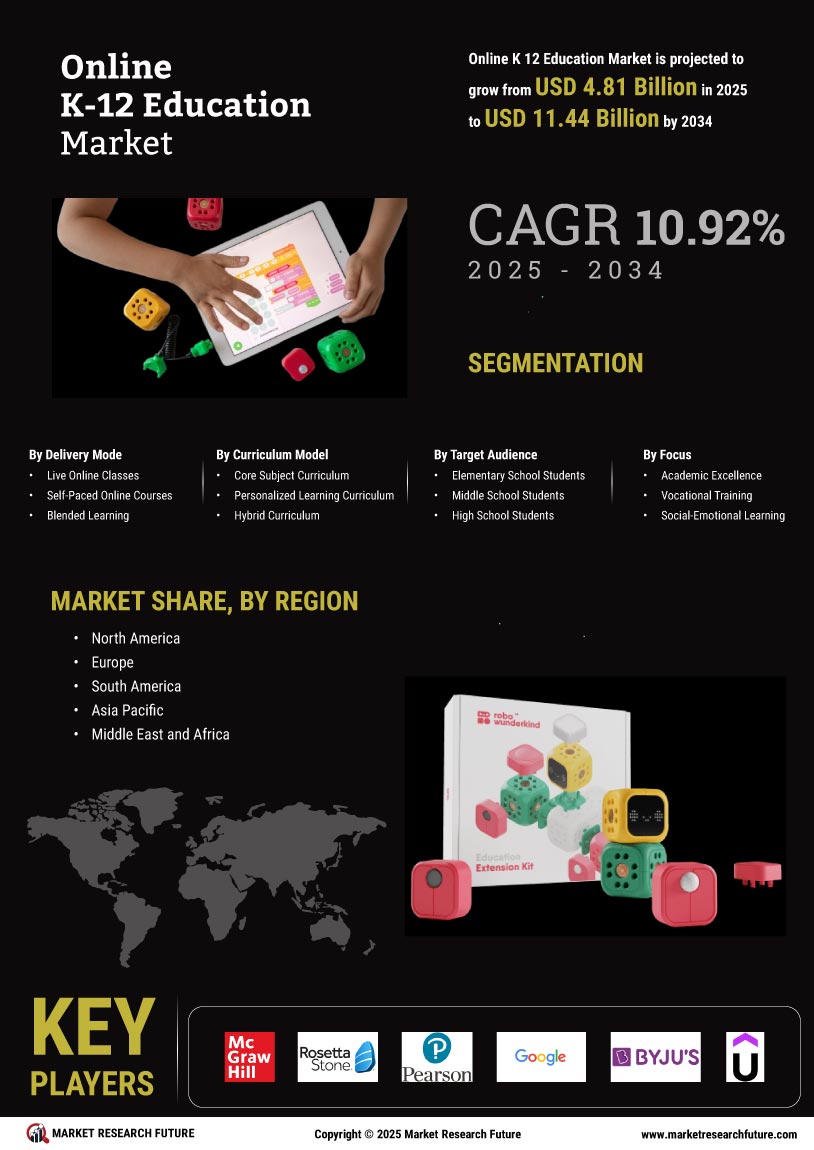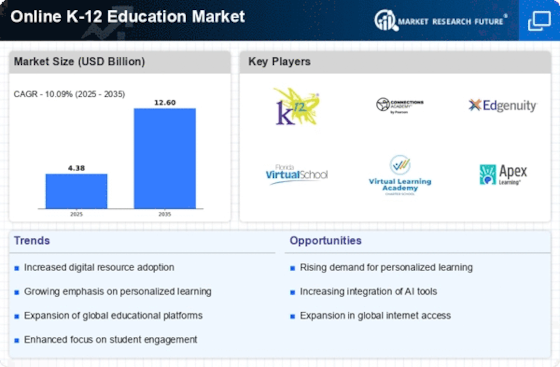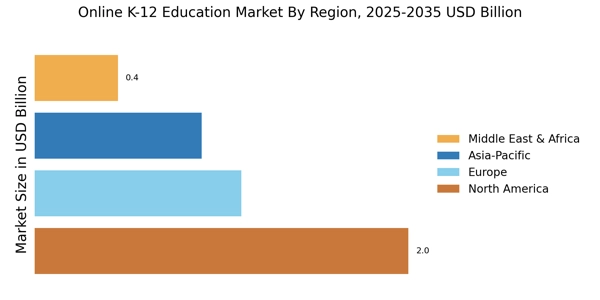Rising Emphasis on STEM Education
The Online K-12 Education Market is witnessing a rising emphasis on STEM (Science, Technology, Engineering, and Mathematics) education. Educational institutions are increasingly recognizing the importance of equipping students with skills relevant to the modern workforce. As a result, online platforms are expanding their STEM offerings, providing students with access to specialized courses and resources. Data suggests that enrollment in online STEM courses has increased by 25% over the past year, reflecting a growing interest among students. This trend not only prepares students for future careers but also aligns with national educational initiatives aimed at enhancing STEM literacy. Consequently, the focus on STEM education is likely to propel the Online K-12 Education Market forward.
Technological Advancements in Education
Technological advancements play a pivotal role in shaping the Online K-12 Education Market. The integration of artificial intelligence, machine learning, and interactive platforms enhances the learning experience for students. For instance, AI-driven tools can provide personalized feedback and adaptive learning pathways, catering to individual student needs. Furthermore, the proliferation of high-speed internet access has facilitated the widespread adoption of online learning platforms. Recent statistics indicate that over 70% of schools have incorporated some form of technology into their curricula, underscoring the importance of tech in education. This ongoing evolution in technology is likely to drive further growth in the Online K-12 Education Market.
Increased Investment in EdTech Solutions
The Online K-12 Education Market is experiencing increased investment in educational technology (EdTech) solutions. Investors and educational institutions are recognizing the potential of technology to enhance learning experiences and outcomes. Recent reports indicate that EdTech investments have surged by over 40% in the past year, driven by the demand for innovative online learning tools. This influx of capital is enabling the development of new platforms, resources, and technologies that cater to the evolving needs of students and educators. As more stakeholders invest in EdTech, the Online K-12 Education Market is likely to witness accelerated growth and innovation, ultimately benefiting students and educators alike.
Increased Demand for Flexible Learning Options
The Online K-12 Education Market experiences a notable surge in demand for flexible learning options. Parents and students increasingly seek educational solutions that accommodate diverse schedules and learning paces. This trend is particularly pronounced among families with varying commitments, such as work or extracurricular activities. According to recent data, approximately 30% of parents express a preference for online education due to its adaptability. This shift towards flexibility not only enhances student engagement but also allows for personalized learning experiences. As a result, educational institutions are compelled to innovate and expand their online offerings, thereby contributing to the growth of the Online K-12 Education Market.
Growing Acceptance of Online Learning by Educational Institutions
The Online K-12 Education Market benefits from a growing acceptance of online learning by educational institutions. Schools and districts are increasingly integrating online components into their traditional curricula, recognizing the potential for enhanced learning outcomes. This acceptance is evidenced by the fact that nearly 60% of school administrators report positive experiences with online education. Furthermore, many institutions are adopting hybrid models that combine in-person and online instruction, thereby broadening access to quality education. This trend not only reflects a shift in educational philosophy but also indicates a commitment to meeting diverse student needs. As acceptance continues to grow, the Online K-12 Education Market is poised for further expansion.

















